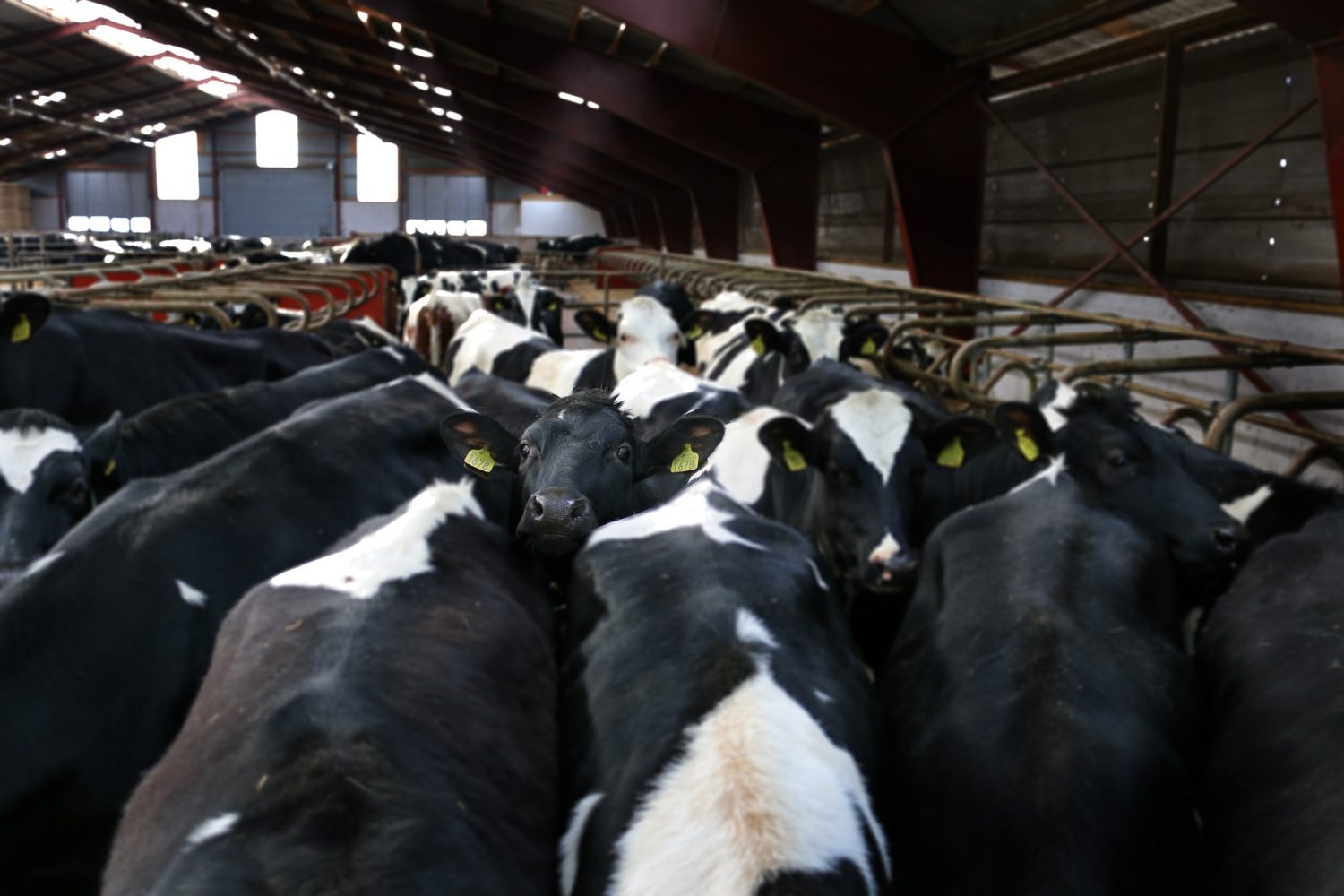This morning, the Guardian featured an article bidding “[g]oodbye – and good riddance – to livestock farming,” which claimed that our current mass animal agriculture would be seen by future generations as the ‘monstrosity‘ of the age.
The article, in a slightly controversial but highly thought-provoking stand, even speculates, “[w]e think of slavery, the subjugation of women, judicial torture, the murder of heretics, imperial conquest and genocide, the first world war and the rise of fascism, and ask ourselves how people could have failed to see the horror of what they did.”
While generally people are uncomfortable with a comparison being made between human and animal suffering, the article succeeds in highlighting the ironies lacing our daily choices.

For instance, the article points to the fact that “[w]hile we call ourselves animal lovers, and lavish kindness on our dogs and cats, we inflict brutal deprivations on billions of animals that are just as capable of suffering” – an argument frequently utilised by animal rights supporters.
While the article does suggest hope in the future, particularly owing to the advent of artificial meat, it laments that change is unlikely to “happen quickly.”
This, in part, is because the media generally still stresses that the issue is not farming itself and that we need not worry about animals kept outdoors.
However, the article points out that “all this does is to swap one disaster – mass cruelty – for another: mass destruction. Almost all forms of animal farming cause environmental damage, but none more so than keeping them outdoors. The reason is inefficiency. Grazing is not just slightly inefficient, it is stupendously wasteful. Roughly twice as much of the world’s surface is used for grazing as for growing crops, yet animals fed entirely on pasture produce just one gram out of the 81g of protein consumed per person per day.”

The article included empirical evidence to back its claims, including a report this week by the Food Climate Research Network, ‘Grazed and Confused’ which, after two years of investigation and examining 300 sources, concludes unequivocally that keeping livestock indoors cannot cause a net reduction in greenhouse gases.
The issues of land were delved into, for instance with the example of sheep, who in the UK, reportedly account for around 1% of our diet in terms of calories. Yet they occupy around 4 million hectares of the uplands – this is roughly equivalent to all of the land under crops in this country, and over double the area of the built environment.
Indeed, one study mentioned in the article said that if everyone opted for a plant-based diet, 15 million hectares of land in Britain currently used for farming could be “returned to nature.”
Alternatively, and impressively, the UK could feed 200 million people with this land.

The directness of this article, particularly in such a well-renowned and reputable newspaper, might seem like a shock. But the message was both vital and well-defended.
For some readers who have not yet considered a plant-based diet, the message might seem to be one of condemnation, but to the contrary, the article highlighted two particular messages of hope and positivity:
- “The end of animal farming might be hard to swallow. But we are a resilient and adaptable species.”
- “An end to animal farming would be the salvation of the world’s wildlife, our natural wonders and magnificent habitats.”


